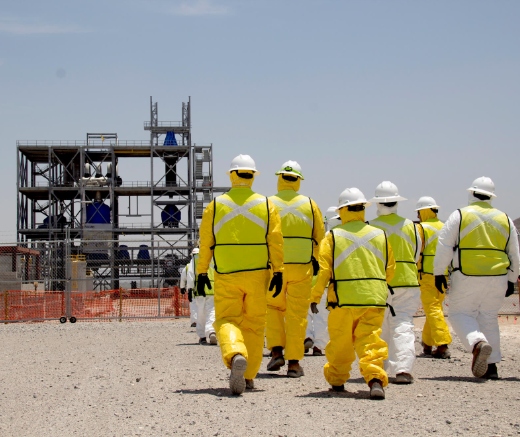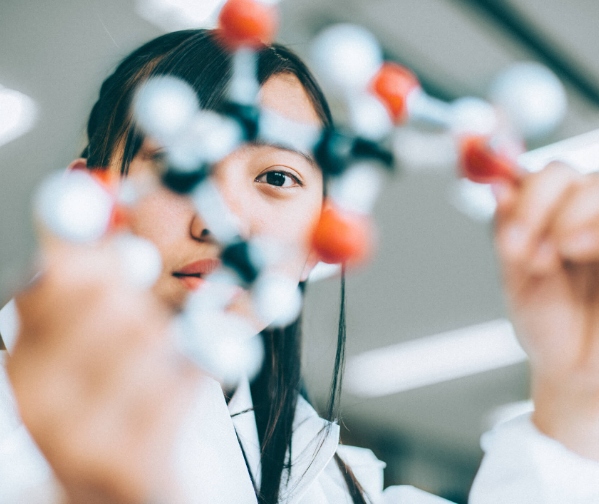


Focused on the future of our planet
Our Sustainability Strategy
At Draslovka, we believe that we can create a positive impact for the environment and communities through the innovative products we create. We are committed to developing innovative products, whilst ensuring we protect the environment and our people. Our strategy rests on four core pillars guiding our efforts to improve the sustainability of our business:
Innovating for Sustainability
Preserving the Environment
Protecting and Developing our People
Operating Responsibly
Innovating for Sustainability
We systematically look to find new and innovative ways to be more sustainable in our operations and through the products and services we offer to our customers. An innovation mindset is inherent to our corporate culture and business success.
Driven by the widespread use and global impact of ozone-depleting fumigant products on the environment, Draslovka Agricultural Solutions was established to develop environmentally sustainable alternatives and bring them to market, removing the need for use of ozone-depleting substances or greenhouse gases in fumigation and agriculture.
Recognising this essential needs of the mining industry, Draslovka has developed Glycine Leaching Technology (GLT) to provide a more sustainable means of extracting essential metals, including from previously non-viable deposits. GLT is fully recyclable, non-toxic, and considerably reduces the need for sodium cyanide as part of the leaching process. For example, in the extraction of gold, GLT can reduce the cyanide needed by 20%-80% and even eliminate detoxification and smelting requirements from the process.


Protecting and developing our people
Our people are at the heart of our business, and ensuring our employees operate in a safe, healthy, and inclusive environment is a top priority for our business. Our commitment to ensuring the highest levels of health and safety performance is longstanding and best demonstrated through our focus on ongoing training and continuous improvement.
That is why we were founding members of the International Cyanide Management Code – a voluntary initiative by members of the gold industry, including producers and transporters of cyanides used for gold mining purposes.
Our Memphis Plant is a three-time recipient of the Tennessee Occupational Safety & Health Administration’s (TOSHA) Workplace Safety and Health Award. Our Kolín plant has similarly achieved third party certification reflecting a commitment to ongoing management and improvement of health and safety, quality management and environmental practices, such as Responsible Care 14001 standard and ISO standards ensuring Environmental management and Quality management system.
Preserving the environment
We believe it is imperative to deliver sustainable long-term value by proactively taking steps to protect the world’s natural environment. Given the nature of our business and the hazardous materials we handle, we have significant controls and policies in place to manage our environmental impact and have made significant progress across water consumption, energy use and waste generation.
While our greatest environmental impact lies in our manufacturing facilities, we are also implementing initiatives to ensure that we reduce the environmental footprint of our offices.
Across all segments of our global supply chain, we act in an environmentally responsible manner, be it in the manufacturing, transportation, or disposal of our products. For example, we only sell sodium cyanide to companies we believe have the ability to protect the environment through the safe handling of our products.


Operating responsibly
We are committed to adopting and implementing the highest levels of ethical conduct within our operations and in our interactions with suppliers, customers, and partners. This begins by ensuring consistent policies are in place across our operations and extends to ensuring our corporate culture supports our goals.
In order for our business to operate responsibly, we must also ensure that we are proactive in engaging with our local communities. We have long been committed to building transparency and trust within our communities of operation and look forward to further expanding our community engagement efforts going forward.
As the business grows, our shared culture and vision becomes more important. Since the company has grown globally by acquisition, it is important to ensure we implement and maintain a cohesive global culture which recognises the need for nuance and specificity. In order to achieve this, in 2022 we launched a long-term culture project kicked off by “Shared Vision” workshop in Mexico City.




